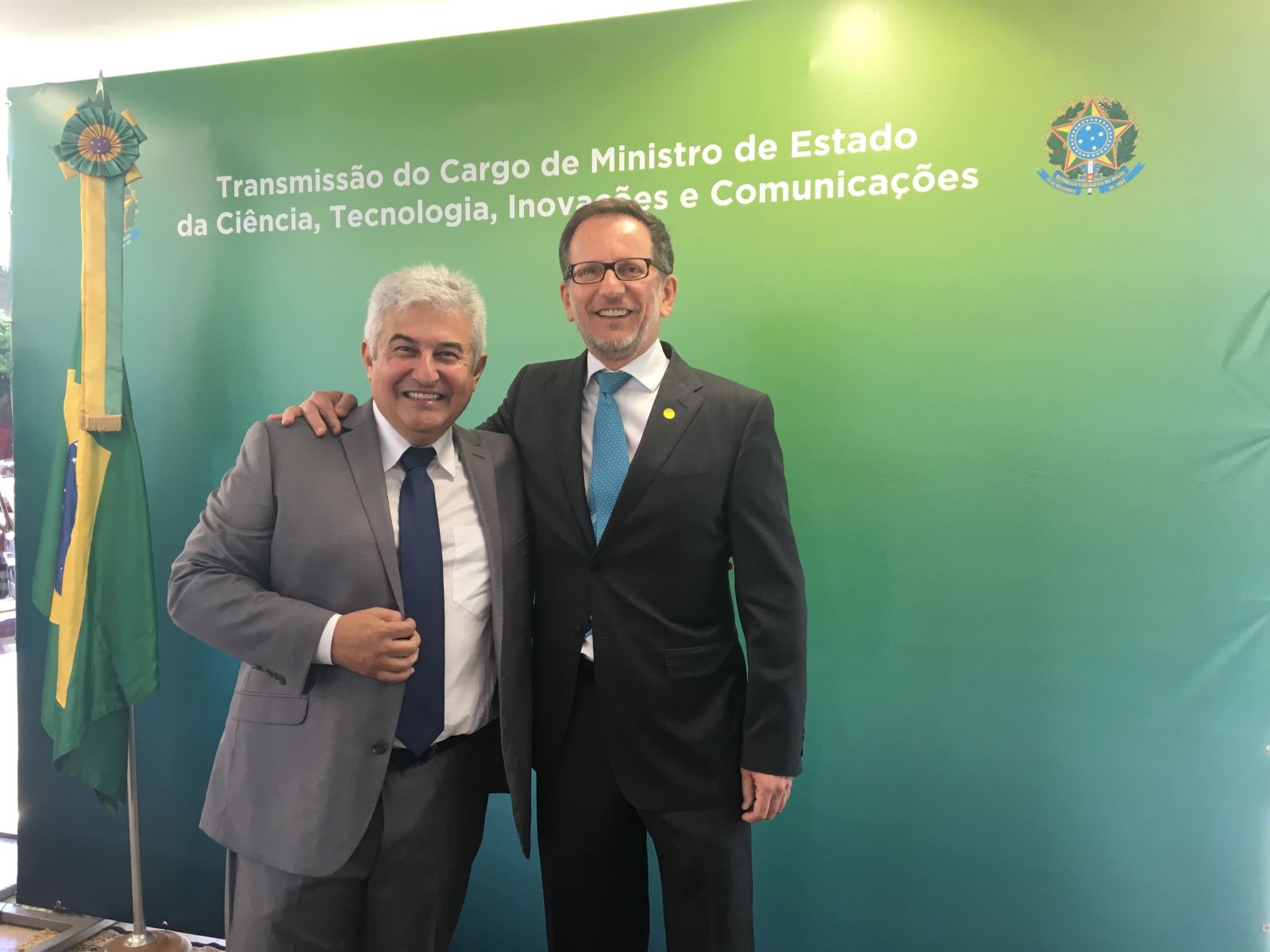"ABES is available to discuss and contribute to major national issues in digital transformation, data privacy and security, internet of things, digital government, policies to encourage innovation, among others", explains Francisco Camargo, president of the association.

Marcos Pontes, minister of MCTIC, and Paulo Roque, vice-president of ABES
During the ceremony, the minister took the opportunity to present the guidelines of the new management and the challenges that most concern the team. He said that he has been discussing with entities in the area ways to value knowledge production careers and how to motivate Brazilian researchers to stay in the country. Among the challenges are ensuring infrastructure and promoting professional development, in partnership with the Ministry of Education and Culture (MEC).
Pontes also stressed that he will seek partnerships with other ministries to promote strategic “applied technologies”, such as those related to space, nuclear, cybersecurity, artificial intelligence, to support sustainable development and support agricultural production. Policies already formulated or launched for certain technologies, such as the Internet of Things, are under analysis to evaluate possible revisions.
In order to have “strong” basic research in the country, another challenge is funding. On this topic, he recognized the budgetary constraints and highlighted the need to increase resources for this activity. “We have at CNPq [National Council for Scientific and Technological Development] a current problem of investments, of budget, which we will have to work with throughout the year with the National Congress or with other possibilities so that we can complete this budget, as was done in the past,” he said.

Marcos Pontes. minister of the MCTIC, and Rodolfo Fücher, counselor of ABES
Innovation
More than expanding the production of knowledge, Pontes noted the need to strengthen the processes of transforming research into innovations, with applications in the productive sector and in other social activities. To that end, he highlighted the importance of attracting private investment to form partnerships with a view to developing technological solutions.
“We have collected several models, such as innovation centers, technology parks, incubators. We are going to bring this into a structuring model that we can replicate in various locations across the country and that can be adapted according to the local vocation of each place. Brazil is a very big country and we need to adapt innovation”, he defended. He added that these projects should be called Innovation Training Centers.
Larger companies should also contribute to encouraging smaller ones, the so-called startups. According to Pontes, this generates benefits for both, as it develops solutions that are interesting to the largest firms. In addition, he argued that it is necessary to articulate other bodies, such as Sebrae, state governments and city halls.
Broadband
In the area of communications, Marcos Pontes highlighted the challenge of expanding broadband access in the country. “We have a very big country. This is one of the efforts that we have to make. We know that there are more remote regions, more difficult to take broadband. But it is very important for schools, for families as a whole to bring it to the current reality”, he highlighted.
According to the most recent edition of the Internet Management Committee's ICT Household survey, 74% of Brazilians said they had already accessed the Internet, a rate below that of more developed nations. This penetration is marked by inequalities, as connectivity is 77% in urban areas and 54% in rural areas, 79% in the Southeast region and 66% in the Northeast and 96% among those earning more than 10 minimum wages and 60% among those with income of up to 1 minimum wage.
Source: Agência Brasil












